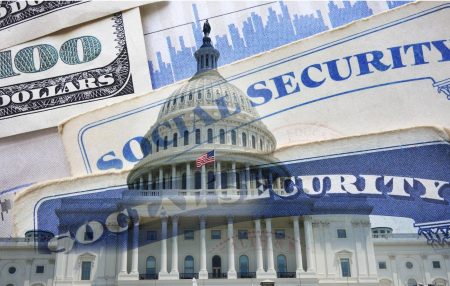Pre-retirees and retirees are understandably concerned about the impact of President Trump’s tariffs on their retirement finances, as evidenced by the large number of seniors at recent demonstrations holding picket signs that read “Hands Off Social Security” and “Hands Off My 401(k).”
Let’s look beyond the slogans to examine how tariffs could impact your finances in retirement. Instead of worrying, learn what you can about the potential impact on your specific situation and develop strategies to help protect your finances.
What Are The Tariffs Imposed By The Trump Administration?
Tariffs are a tax on goods imported into the United States; they’re put in place to encourage consumption of domestic goods and decrease reliance on imported goods. On April 2, the Trump administration announced a series of tariff rates that apply to different countries that export goods to the United States. These rates ranged from a base rate of 10% up to 50% and went into effect on Saturday, April 5, with higher reciprocal rates going into effect April 9. Then, Trump announced pauses in some tariffs on April 9, adding to the volatility and uncertainty in financial markets.
The General Impact Of Tariffs On Retirees’ Finances
While tariffs can have both predictable and unpredictable impacts on the general economy, the impact on your finances depends on the common-sense formula for retirement security and how it implies to your money:
I > E, or income greater than expenses.
To ensure you’ll have enough money, you’ll need to satisfy this formula for the rest of your life. Let’s look at both sides of this formula with the recently announced tariffs in mind.
Impact Of Tariffs On Retirement Income And Investments
You might find that much of your retirement income isn’t affected by tariffs: Sources of income that won’t drop because of tariffs include Social Security, pensions if you have one, and monthly income from any annuities you purchased. You’ll want to determine the portion of your total retirement income that comes from these protected sources; if you have substantial protected income, the total amount of your retirement income might not be impacted very much by tariffs.
The most likely impact from tariffs on your retirement income would be with any systematic withdrawals you’re making from retirement assets that are invested in the stock market, which has declined significantly since the tariff announcement.
If a large portion of your retirement income comes from this source, you might consider reducing your withdrawal amount to protect against a sequence-of-returns risk (withdrawing too much money during a market decline). You can reduce the amount you withdraw by applying your withdrawal rate to the adjusted market value of your assets after the recent stock market drop. Then you’ll want to reduce your spending accordingly.
Over the short term, there could also be disruptions in the workforce, as employers adjust to the post-tariff world. If you rely on part-time work for the money it provides you, you’ll want to assess if this income will still be reliable in the foreseeable future.
Over the long term, the impact of tariffs on your retirement income will depend on cost-of-living increases to Social Security (more on this later), the impact on the economy and employment rates, and the long-term impact on stock market investments, all of which are unpredictable. Accordingly, you’ll want to revisit the amount of your assets devoted to stocks to see if you can tolerate fluctuations in the portion of your retirement income that’s generated from invested assets without losing sleep at night.
Impact Of Tariffs On Cost-Of-Living In Retirement
Over the short term, the prices of imported goods could rise to the extent that importers pass along the costs of the tariffs to consumers. However, domestic manufacturers could also increase their prices to profit from the new advantage they now have over importers. The impact on your finances depends on how many imported goods you buy and the extent to which domestic manufacturers increase their prices on the goods you buy from them.
A good portion of your living expenses could be based on the cost of goods and services from domestic sources, which wouldn’t be directly affected by tariffs. Examples include mortgage payments, rent, property taxes, homeowners insurance, premiums for medical insurance and Medicare, local travel and entertainment, and domestically-produced food.
Items whose cost could be most impacted by tariffs include imported cars, domestically-produced cars that use significant imported parts, smartphones and electronics, appliances, certain fruits and vegetables, coffee, and clothing.
According to one analysis, the average consumer could lose as much as $3,800 in buying power due to the recent tariffs, which assumes they continue their current spending habits. If you buy a lot of imported goods, you’ll want to determine whether you could replace them with domestic goods.
For example, you could buy more food at local farmers markets, which are domestic goods. You could also buy clothes from second-hand stores and consignment stores and delay purchasing a smartphone, consumer electronics, or a new car.
If you must buy an imported good because of need or no alternative source, try buying as soon as possible from existing inventory. For example, my wife and I just ordered several bags of coffee to stock up.
Impact of Tariffs On Medicare And Medical Expenses
The vast majority of medical services are delivered domestically, so there might not be much immediate direct impact on Medicare premiums and medical costs. However, prescription drug prices could increase in the near future, since a large portion of drugs are manufactured overseas.
Long-Term Indirect Costs Of Tariffs
If tariffs cause inflation, which is inevitable over the short term, it could result in salary increases for all types of in-demand essential workers, including health care providers. This could raise the cost of health care over time and thus raise your health care premiums.
While Social Security protects your purchasing power through the annual cost-of-living adjustment, other sources of retirement income, such as pensions and many income annuities, are fixed and would lose buying power over time. If this happens, you would likely need to review your expenses to find ways to trim back.
The recent stock market decline is a test of the financial strategy I’ve long been advocating for retirees: Cover your “must-have” living expenses with sources of protected lifetime retirement income, and pay for “nice-to-have” living expenses with systematic withdrawals from invested assets. This strategy recognizes that most retirees will need to live through a handful of stock market crashes in their lifetime without knowing when they’ll happen or how strongly they’ll be affected. Indeed, we may be living through one of those times right now.
Nobody said it would be easy to be retired for 20 years or more; now is the time to draw upon your resilience and adjust the strategies you have in place to continue to enjoy your retirement.
Read the full article here









